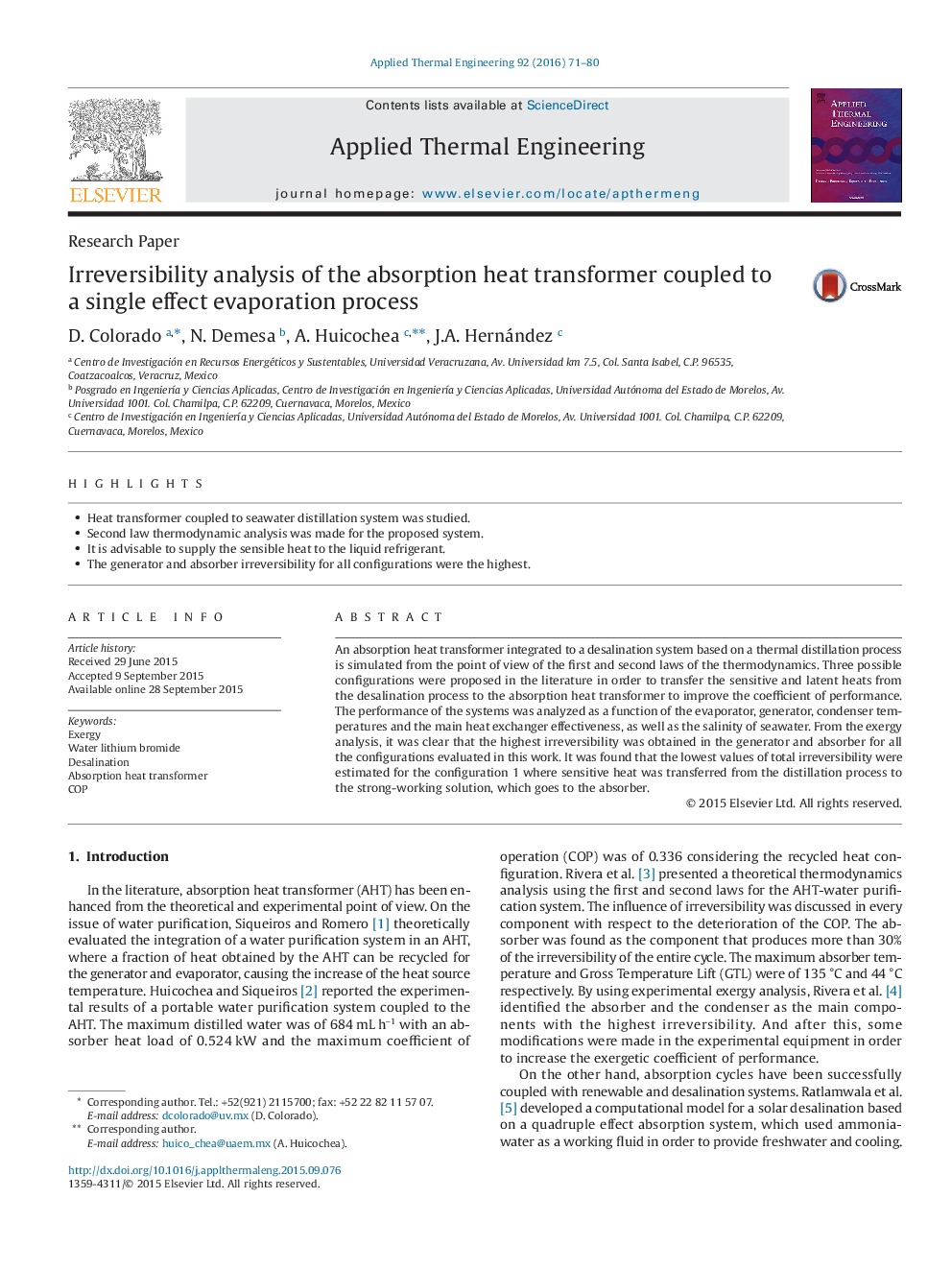| Article ID | Journal | Published Year | Pages | File Type |
|---|---|---|---|---|
| 645024 | Applied Thermal Engineering | 2016 | 10 Pages |
•Heat transformer coupled to seawater distillation system was studied.•Second law thermodynamic analysis was made for the proposed system.•It is advisable to supply the sensible heat to the liquid refrigerant.•The generator and absorber irreversibility for all configurations were the highest.
An absorption heat transformer integrated to a desalination system based on a thermal distillation process is simulated from the point of view of the first and second laws of the thermodynamics. Three possible configurations were proposed in the literature in order to transfer the sensitive and latent heats from the desalination process to the absorption heat transformer to improve the coefficient of performance. The performance of the systems was analyzed as a function of the evaporator, generator, condenser temperatures and the main heat exchanger effectiveness, as well as the salinity of seawater. From the exergy analysis, it was clear that the highest irreversibility was obtained in the generator and absorber for all the configurations evaluated in this work. It was found that the lowest values of total irreversibility were estimated for the configuration 1 where sensitive heat was transferred from the distillation process to the strong-working solution, which goes to the absorber.
